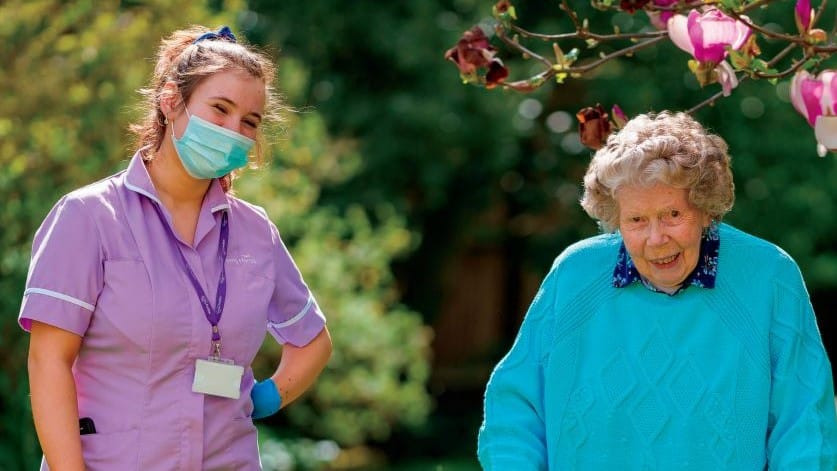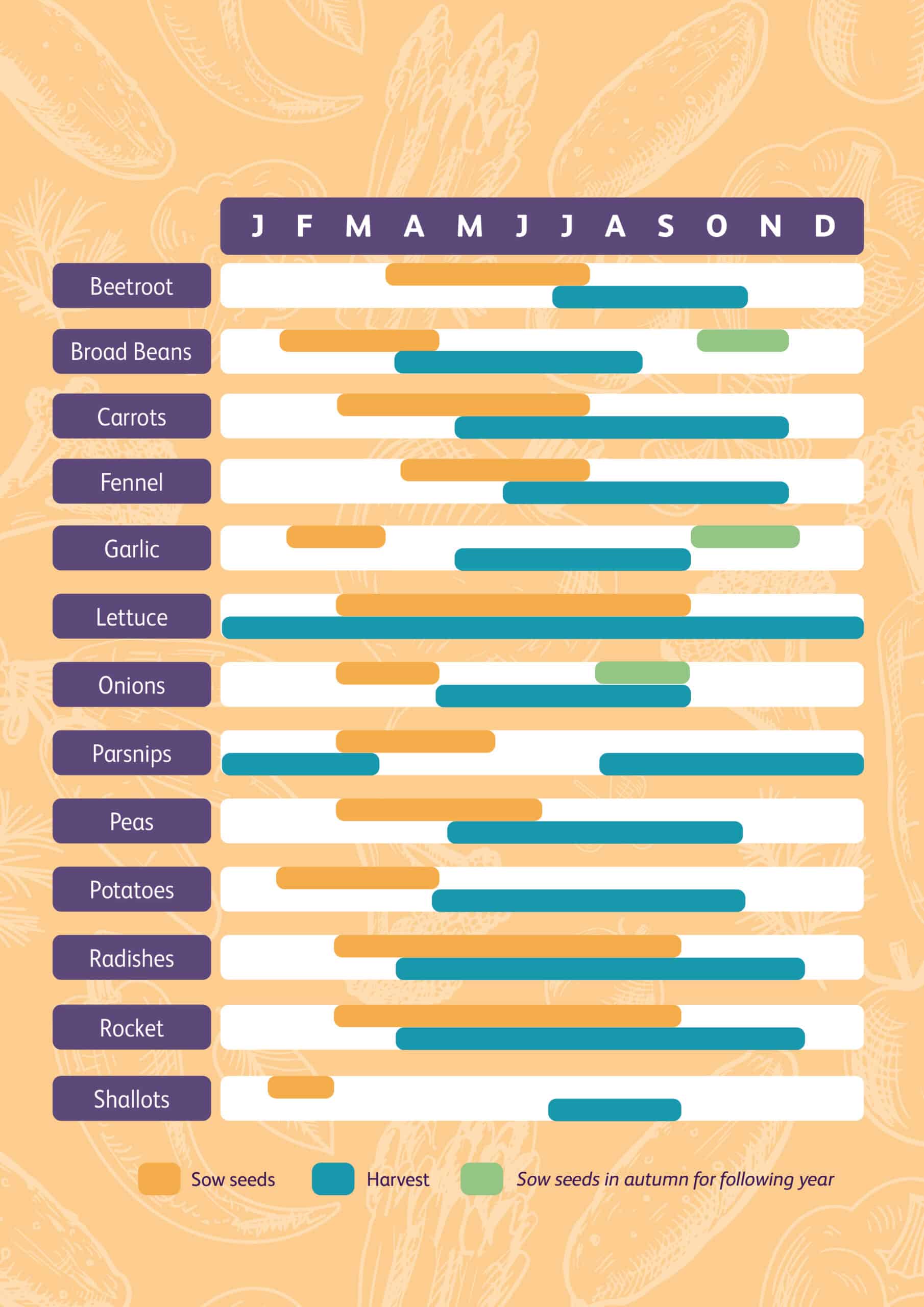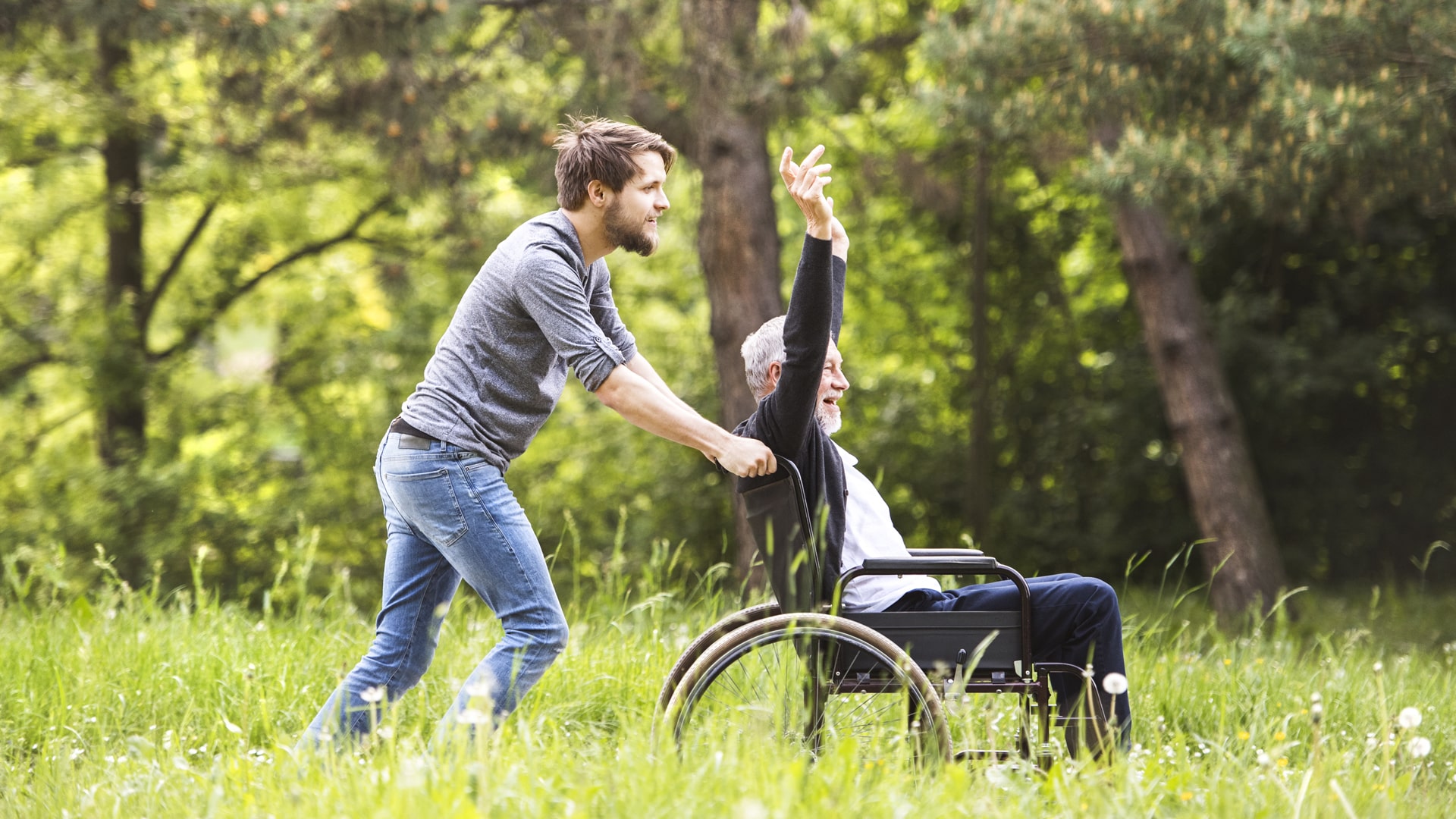Creating a low-maintenance garden for the elderly

Benefits of gardening for the elderly
Become green-fingered - get gardening!
There’s nothing better than being covered in mud in the bright sunshine, weeding an unruly plant that blossomed wonderfully last year but now seems to have a vendetta against you and your garden tools this year. The challenge of gardening is a relaxing and positive one; getting back to nature and transforming your garden from a barren wilderness into a garden of Eden. Gardening is a healthy skill which requires practice and patience and may not turn out perfectly the first time around. Who knew insects would go to town on your green, luscious leaves, or the next-door neighbour’s cat would leave its daily deposits within the bushes of your hydrangeas? Gardening can be especially beneficial with elderly care for its many physical and mental health benefits.

Benefits of a low maintenance garden for elderly people
A low-maintenance garden is the same as any other garden - just pocket-sized and full of health benefits.
Increased activity
Gardening requires regular and continuous care which means that elderly people will be actively engaged in the activity often, which will help their mobility. Regularly gardening increases their physical activity and can prevent many diseases such as osteoporosis, some cancers, Type 2 diabetes, depression, and heart disease.
Mental health
Proximity to nature can enhance your well-being through stress relief and emotional regulation. Research also shows that those who are connected more to nature are usually happier in life and more fulfilled. Nature can generate positive emotions such as calmness, joy and creativity and can even help concentration.
Social
Gardening groups offer a way for elderly retired people, with many leisurely hours to fill, to connect with nature and each other. Connecting with other members of a gardening group allows elderly people to receive social support and to contribute positively to the lives of others, an important protective factor against isolation and loneliness.
Quality of life
Having a beloved hobby is a great addition to a happy life, especially for the elderly who may have retired and have a lot of time on their hands. Improved physical functioning and engagement with activities can enhance their quality of life. Elderly gardening is a very popular leisure activity and can be a great method for elderly care.
What is included in a low-maintenance garden
-
Evergreen shrubs
-
Investing in plants that may need less care and attention can be less hassle all around. Shrubs take less time to grow and do not need as much maintenance. You’ll still have lovely flowers but will tend to them less!
-
Irrigation system
-
Heavy buckets of water aren’t your back’s best friend, especially if you are older and are less mobile nowadays. Sprinkler systems can water your garden for none of the physical labour. Let the machine do the graft!
-
Adaptable tools
-
Some tools are made for different tasks and to suit your stage of life. Tools with extendable handles can reduce the amount of bending and stretching you need to do when tending to your garden.
-
Lawn alternatives
-
Lawns are very high maintenance with the amount of mowing and trimming needed. If you don’t have the time or ability to mow all year round, alternatives to natural grass lawns are available, such as plastic grass or gravel.
-
Weed management
-
No one likes weeds overtaking your beautiful garden, so it’s a good idea to invest in some weed killer. Or, simply add 4-6 inches of compost or organic matter onto your planting beds which will smother the weeds with the help of some trusty worm friends.
Design your garden to be accessible:
Raised flower beds
Wheelchair accessible
Pathways
Seating areas
Hanging baskets
Clear of weeds
How a live-in carer can help with gardening

At Helping Hands, we offer expert live-in, visiting and respite care for you and your unique healthcare needs.
A live in carer can handle anything from housekeeping to complex medical tasks, but they can also be a helping hand (excuse the pun) to have in a low-maintenance garden. A live-in carer will take an interest in your interests and therefore will encourage your hobby of gardening. Our carers will even take you out to your favourite gardening shows, assess the quality of tomato plants, and gossip about the neighbour’s poor crop yield this year with you.
How to help the elderly with their gardening
Making a garden more accessible for elderly loved ones is important if they perhaps have mobility issues.
Hire a gardener
If needs be, consider hiring a gardener to handle those pesky weeds for your loved one. Some local councils offer a garden maintenance service for elderly or disabled council tenants too. However, if your elderly parent just loves being among the foliage and unleashing their inner Tarzan, consider a smaller plot to encourage their new hobby, where weeds can be less hassle.
Accessible garden
You can also make sure all the plants are accessible by being on raised beds or hanging planters for easy access. This will help the plants themselves be more accessible for the person tending them and won’t require as much physical movement outside of their means. Gardening involves a lot of bending, squatting, and straining so may not be easy for certain older people.
Gardening competitions
Encouraging your loved one to get into gardening can also be a good method of getting them out in the green. Thankfully, we do love a good event in Britain, and so there are many gardening, flower, and vegetable events across the UK. You can even get competitions that can show off your wonderful yet monstrous courgette that has taken over your entire garden.
Entertainment
There is also an abundance of television shows about gardening, like ‘Gardener’s World’ on BBC Two, ‘Love Your Garden’ on ITV1 and many more. This will provide information and entertainment for an elderly person about their new favourite hobby. Feeling inspired by these sorts of entertainment will take away the stress they may have from the difficulties that come with old age.
Alternatives to a large lawn space:
Rock garden
Meadow
Decking
Artificial turf
Ground plants

